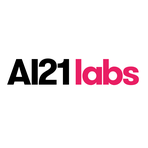Stigg Secures $17.5 Million to Revolutionize Software Monetization
December 13, 2024, 3:35 pm

Location: Israel, Tel Aviv District, Tel Aviv
Employees: 11-50
Founded date: 2017
Total raised: $481.5M

Location: Australia, New South Wales, Sydney
Employees: 501-1000
Founded date: 2009
Total raised: $171.7M

Location: United States, California, Mountain View
Employees: 201-500
Founded date: 2012
Total raised: $472M

Location: United States, California, San Francisco
Employees: 1001-5000
Founded date: 2011
Total raised: $450M
In the fast-paced world of software development, agility is king. Companies must adapt quickly to changing market demands, especially with the rise of artificial intelligence. Enter Stigg, a startup that just raised $17.5 million in Series A funding to transform how software companies approach monetization. This funding round, led by Red Dot Capital Partners, with support from Unusual Ventures, Emerge Ventures, Redseed, and Cerca Partners, brings Stigg's total funding to $24 million.
Stigg is not just another player in the SaaS landscape. It positions itself as the first unified monetization platform tailored for engineers. In a realm where traditional billing systems often act as anchors, Stigg offers a lifeline. It enables businesses to modernize their payment and billing infrastructure, allowing them to iterate on new pricing models with unprecedented speed.
The demand for flexibility in pricing strategies has never been greater. As software companies integrate AI capabilities, they face the challenge of supporting various revenue models simultaneously. From consumption-based pricing to subscription models, the landscape is evolving. Stigg's platform is designed to meet this challenge head-on.
At its core, Stigg provides a powerful entitlement management API. This API facilitates granular access control at the feature level, allowing developers to manage configurations, metering, and access seamlessly. It acts as middleware, bridging the gap between SaaS applications and existing billing systems. This means engineering teams can roll out new pricing plans—be it hybrid models, bundles, or usage-based billing—without extensive code changes.
Imagine a conductor leading an orchestra. Each instrument must play in harmony, yet each has its unique role. Stigg orchestrates the complex symphony of billing and monetization, ensuring that every feature can be monetized effectively. Instead of piecing together disparate systems, companies can access a unified platform that simplifies the orchestration of their monetization strategies.
Stigg's appeal lies in its ability to empower engineering teams. The startup claims to manage billions of API calls and tens of millions of monthly subscriptions for notable clients like Miro, Webflow, AI21 Labs, and PagerDuty. These companies have experienced significant growth after adopting Stigg's infrastructure, enabling them to deploy new pricing models and AI features rapidly.
The traditional monolithic billing systems are akin to a heavy anchor. They slow down business growth and hinder innovation. Stigg's approach liberates companies from these constraints. By providing a flexible framework, businesses can serve different market segments more effectively. This adaptability is crucial as companies layer in AI capabilities and expand into new channels.
Stigg's technology addresses a critical pain point in the industry. Many companies struggle to adapt their monetization infrastructure to support new business models and AI features. Stigg's zero churn rate and strong customer momentum signal that it has tapped into a vital need for modern software companies.
The startup's success is not just about technology; it's about timing. The rapid adoption of generative AI in software products is reshaping how software is sold. Companies must be agile, ready to pivot their pricing strategies to capture new opportunities. Stigg's platform allows for this agility, enabling businesses to experiment with different monetization strategies risk-free.
Consider the analogy of a race car. To win, it must be finely tuned and responsive to the driver's commands. Stigg provides the tools for companies to fine-tune their monetization strategies, ensuring they can respond to market changes swiftly. This capability is essential in a landscape where customer expectations are continually evolving.
The implications of Stigg's funding and technology extend beyond individual companies. As more businesses adopt flexible pricing models, the entire software ecosystem will shift. Companies will be better equipped to innovate, experiment, and grow. This shift could lead to a new era of software monetization, where agility and adaptability are paramount.
In conclusion, Stigg's recent funding round marks a significant milestone in the evolution of software monetization. By providing a unified platform that simplifies billing and pricing strategies, Stigg empowers companies to navigate the complexities of the modern software landscape. As businesses increasingly integrate AI capabilities, the need for flexible monetization solutions will only grow. Stigg is poised to lead the charge, transforming how software companies approach their pricing models and ultimately driving growth in the industry. The future of software monetization is here, and it’s powered by Stigg.
Stigg is not just another player in the SaaS landscape. It positions itself as the first unified monetization platform tailored for engineers. In a realm where traditional billing systems often act as anchors, Stigg offers a lifeline. It enables businesses to modernize their payment and billing infrastructure, allowing them to iterate on new pricing models with unprecedented speed.
The demand for flexibility in pricing strategies has never been greater. As software companies integrate AI capabilities, they face the challenge of supporting various revenue models simultaneously. From consumption-based pricing to subscription models, the landscape is evolving. Stigg's platform is designed to meet this challenge head-on.
At its core, Stigg provides a powerful entitlement management API. This API facilitates granular access control at the feature level, allowing developers to manage configurations, metering, and access seamlessly. It acts as middleware, bridging the gap between SaaS applications and existing billing systems. This means engineering teams can roll out new pricing plans—be it hybrid models, bundles, or usage-based billing—without extensive code changes.
Imagine a conductor leading an orchestra. Each instrument must play in harmony, yet each has its unique role. Stigg orchestrates the complex symphony of billing and monetization, ensuring that every feature can be monetized effectively. Instead of piecing together disparate systems, companies can access a unified platform that simplifies the orchestration of their monetization strategies.
Stigg's appeal lies in its ability to empower engineering teams. The startup claims to manage billions of API calls and tens of millions of monthly subscriptions for notable clients like Miro, Webflow, AI21 Labs, and PagerDuty. These companies have experienced significant growth after adopting Stigg's infrastructure, enabling them to deploy new pricing models and AI features rapidly.
The traditional monolithic billing systems are akin to a heavy anchor. They slow down business growth and hinder innovation. Stigg's approach liberates companies from these constraints. By providing a flexible framework, businesses can serve different market segments more effectively. This adaptability is crucial as companies layer in AI capabilities and expand into new channels.
Stigg's technology addresses a critical pain point in the industry. Many companies struggle to adapt their monetization infrastructure to support new business models and AI features. Stigg's zero churn rate and strong customer momentum signal that it has tapped into a vital need for modern software companies.
The startup's success is not just about technology; it's about timing. The rapid adoption of generative AI in software products is reshaping how software is sold. Companies must be agile, ready to pivot their pricing strategies to capture new opportunities. Stigg's platform allows for this agility, enabling businesses to experiment with different monetization strategies risk-free.
Consider the analogy of a race car. To win, it must be finely tuned and responsive to the driver's commands. Stigg provides the tools for companies to fine-tune their monetization strategies, ensuring they can respond to market changes swiftly. This capability is essential in a landscape where customer expectations are continually evolving.
The implications of Stigg's funding and technology extend beyond individual companies. As more businesses adopt flexible pricing models, the entire software ecosystem will shift. Companies will be better equipped to innovate, experiment, and grow. This shift could lead to a new era of software monetization, where agility and adaptability are paramount.
In conclusion, Stigg's recent funding round marks a significant milestone in the evolution of software monetization. By providing a unified platform that simplifies billing and pricing strategies, Stigg empowers companies to navigate the complexities of the modern software landscape. As businesses increasingly integrate AI capabilities, the need for flexible monetization solutions will only grow. Stigg is poised to lead the charge, transforming how software companies approach their pricing models and ultimately driving growth in the industry. The future of software monetization is here, and it’s powered by Stigg.